#anselm of canterbury
Explore tagged Tumblr posts
Text
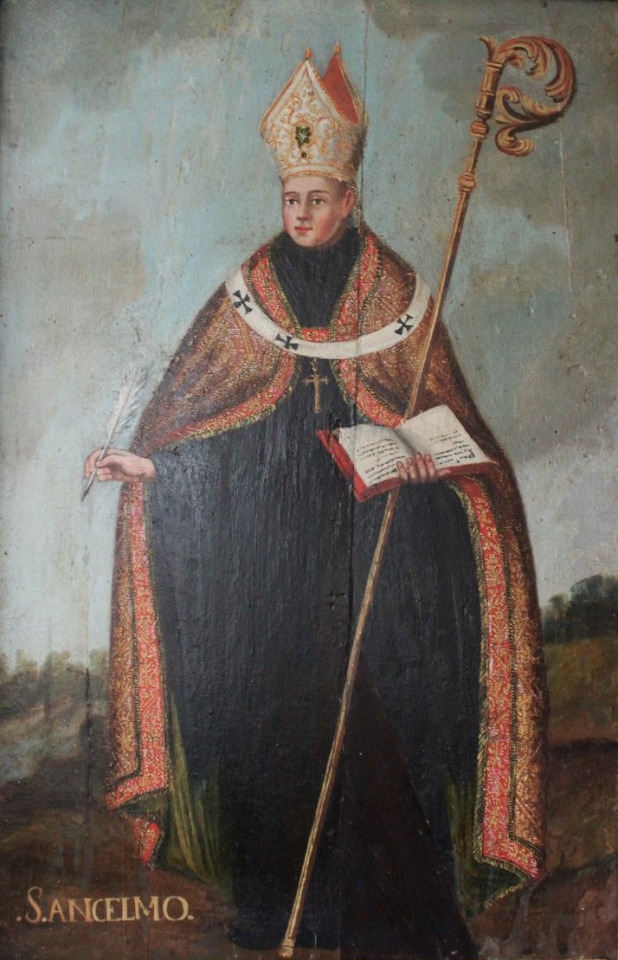
THE DESCRIPTION OF SAINT ANSELM OF CANTERBURY The Father of Scholasticism and the Defender of the Immaculate Conception Feast Day: April 21
"For I do not seek to understand in order to believe, but I believe in order to understand. For I believe this: unless I believe, I will not understand."
The future archbishop of Canterbury was born Anselmo d'Aosta, circa 1033 in Aosta, Kingdom of Burgundy, Holy Roman Empire. His father Gundulph, was a Lombard noble, probably one of Adelaide's Arduinici uncles or cousins; his mother Ermenberga was almost certainly the granddaughter of Conrad the Peaceful, related both to the Anselmid bishops of Aosta and to the heirs of Henry II who had been passed over in favour of Conrad.
At the age of 27, he entered the Benedictine abbey of Bec, in Normandy, and three years later, he was elected as the abbot of Caen. Several monks murmured on account of his youth, but Anselm by his sympathy and patience won the allegiance of all. With regard to the training of the young, he had quite modern views.
To a neighboring abbot, who was lamenting the poor success of his educational method, he said: 'If you plant a tree in your garden and bound it on all sides, so that it can not spread out its branches, what kind of tree would it become? And that is how you treat your boys, cramping them with fears and blows, depriving them of the enjoyment of any freedom.'
Being an original thinker, Anselm was the greatest theologian of his age, and the father of Scholasticism. In the Monologion, he spoke of God as the highest being and investigated God's attributes; while in his Prologue, he gave the famous ontological proof of God's existence.
Anselm was called to succeed his countryman Lanfranc, as the archbishop of Canterbury. It was a time of great strife with the king over the Church's independence, and Anselm was exiled several times.
Amid the rejoicing of the people, Anselm returned to Canterbury in 1106, where he died a holy death on April 21st three years later in 1109. Anselm was proclaimed a Doctor of the Church by Pope Clement XI in 1720; he is known as the doctor magnificus ('Magnificent Doctor') or the doctor Marianus ('Marian doctor').
4 notes
·
View notes
Note
two silly questions for your scholarly mind, if it pleases firstly: do you think it is more likely that Paul was married but separated or widowed, or that Paul never married? and secondly: based on what we know of Paul's life, what do you think was the thorn in Paul's side that he mentions in 2 Corinthians 12?
I'm going to start with the second question, because this was something that had interested me. The Church Fathers seem split as to whether the "thorn in [Paul's] flesh" refers to a disability (Anselm of Canterbury, Bede the Venerable, Jerome), a serious temptation of some kind (Hugh of Saint-Cher), or the persecutions he faced on behalf of the Gospel (John Chrysostom, Ambrose of Milan, Theophylact of Ohrid).
I don't really have a strong argument for one of these possibilities over the other, but I will say that emotionally, I have an attachment to the disability interpretation; my "born again" moment roughly coincided with my own diagnosis of a chronic auto-immune disease, and so I often read 2 Corinthians 12:9-10 through the lens of my illness.
As for whether Paul was married, I don't know. It was normative for Pharisees, and is normative for Rabbis, to be married; while it was not universally required, there were at least some times and places where ordination would not be granted to unmarried men, studying certain forms of theology was limited to married men, and membership in the Sanhedrin required one to be married. Given Paul's adherence to the Law and his being "a zealot for [his] ancestral traditions," (Galatians 1:14) it would make sense that he was married. I don't know, though.
#Christianity#Catholicism#Saint Paul#2 Corinthians#Anselm of Canterbury#Saint Ambrose of Milan#Theophylact of Ohrid#Saint Jerome#Saint Bede#disability#temptation#persecution#Judaism#marriage#asks#Letter to the Galatians
7 notes
·
View notes
Text
After today I'd like to never interact with an argument by Anselm of Canterbury again.
#philosophy#anselm of Canterbury#the way my professor explained it made me discover dyslexia in new ways
0 notes
Text
Ten Most Influential Christians in History
I was recently talking with a friend who wants to learn more about church history and they asked for some top ten lists to get acquainted with important people and books from the history of Christianity. So I sent them the following list. Now, a quick caveat here: these are Christians who specifically influenced theology, faith, and Biblical interpretation. Christians certainly can and have…
#Anselm of Canterbury#Athanasius of Alexandria#Augustine of Hippo#Billy Graham#Cappadocians#Constantine the Great#Francis of Assisi#History#Irenaeus of Lyon#John Calvin#Jonathan Edwards#KJV#Lists#Marcion#Martin Luther#Mother Theresa#Origen#Patrick of Ireland#Thomas Aquinas#Top Ten
0 notes
Text
Three Pesudo-Augustine Collections
1498, 1686, 1718. Each contain the Meditations, Soliloquia, and Manuall The contents of these three volumes from three different centuries all contain the three ‘core’ pseudo-Augustine texts ,the two latin editions have texts by Pseudo-Bernardus, Petrus Damiani, Anselm of Canterbury, N. Laudensis, Pius II, Papst, Maphaeus Vegius,Vincentius Ferrerius,Pseudo-Bernardus. The English edition has…
#Anselm of Canterbury#Maphaeus Vegius#Masellus Beneventanus#Petrus Damiani#Pseudo-Augustine#Pseudo-Bernardus#Saint Augustine#Vincentius Ferrerius
0 notes
Text
Neque enim quaero intelligere ut credam, sed credo ut intelligam. “I do not seek to understand in order that I may believe, but rather, I believe in order that I may understand.”
Saint Anselm (c. 1033 – 1109), Italian Benedictine monk and philosopher who held the office of Archbishop of Canterbury
1 note
·
View note
Text
In total I've read 40 books this year: 4 re-reads and 36 new reads:
The Odyssey - Homer
Wellness - Nathan Hill
A Gift of Love - Martin Luther King, Jr.
The Autobiography of Malcolm X - Malcolm X and Alex Haley
Church Dogmatics II.2, §32 - 33 - Karl Barth
The Courage to Be - Paul Tillich
A Tree Grows in Brooklyn - Betty Smith
A Good Man is Hard to Find & Other Stories - Flannery O'Connor
Devotion - Patti Smith
White Evangelical Racism - Anthea Butler
Works of Love - Søren Kierkegaard
Encounters with Jesus - Timothy Keller
Genesis - Anonymous (reread)
Tom Lake - Ann Patchett
Modern Poetry - Dianne Seuss
The Old Man and the Sea - Ernest Hemingway
Jesus and John Wayne - Kristin Kobes Du Mez
The Seven Husbands of Evelyn Hugo - Taylor Jenkins Reid
St. Paul: A Screenplay - Pier Paolo Pasolini
The Death of Adam - Marilynne Robinson
One Way Back - Christine Blasey Ford
Till We Have Faces - CS Lewis (reread)
The Exvangelicals - Sarah McCammon
The Kingdom, The Power, and The Glory - Tim Alberta
Ficciones - Jorge Luis Borges
Jack - Marilynne Robinson
Moral Man & Immoral Society - Reinhold Niebuhr
Critique of Pure Reason - Immanuel Kant
Proslogion - St. Anselm
Rejection - Tony Tulathimutte
Poverty, By America - Matthew Desmond (reread)
Nudge - Cass Sunstein and Richard Thaler
A Boy and His Dog - Harlan Ellison
Exodus - Anonymous (reread)
Evangelical Anxiety - Charles Marsh
Silence - Shusaku Endo
Christianity and Liberalism - J. Gresham Machen
That All Shall Be Saved - David Bentley Hart
Deliverance to the Captives - Karl Barth
top four reads of 2024

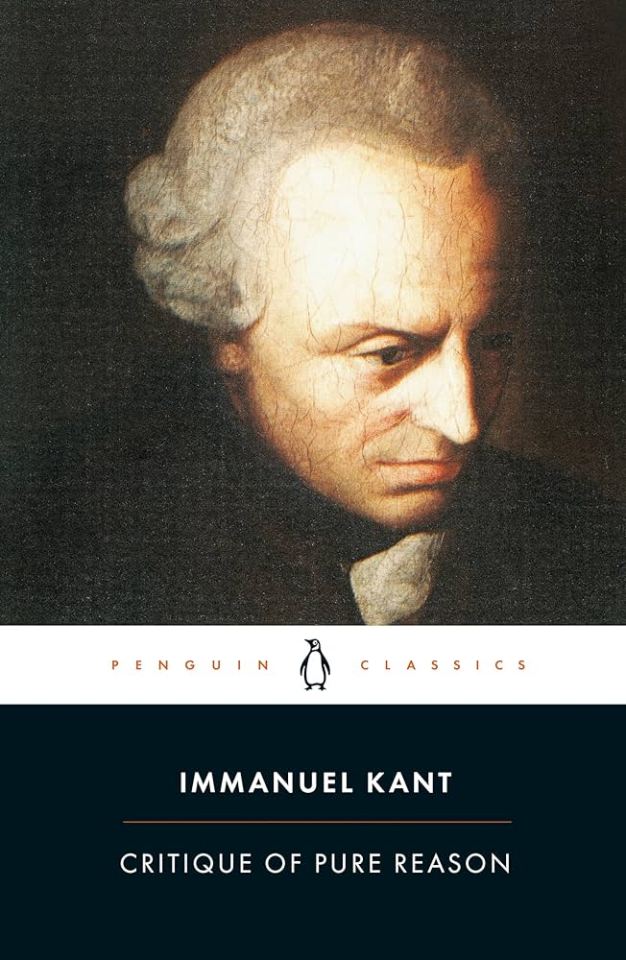
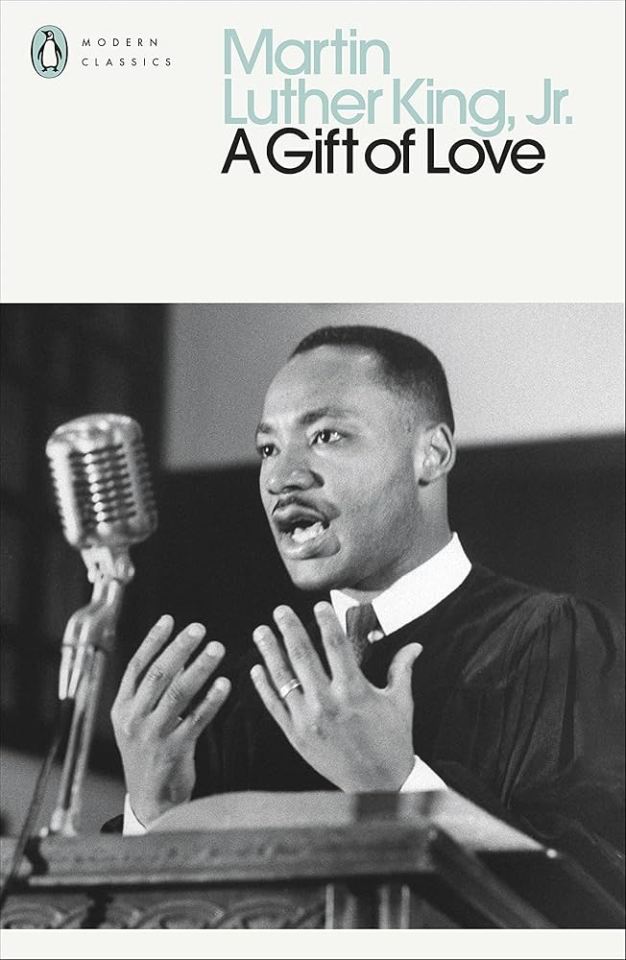

#karl barth#martin luther king jr#Homer#Harlan Ellison#Marilynne Robinson#Anselm of Canterbury#Shusaku Endo#David Bentley hart#j gresham machen#Charles marsh#Matthew Desmond#Cass Sunstein#Richard Thaler#immanuel kant#jorge luis borges#Diane Seuss#tony tulathimutte#cs lewis#Sarah McCammon#christine blasey ford#pier paolo pasolini#Tim Alberta#taylor jenkins reid#ernest hemingway#ann patchett#Timothy Keller#Betty smith#flannery o'connor#patti smith#Anthea Butler
3 notes
·
View notes
Text

St. Anselm of Canterbury
Doctor of the Church
1033-1109
Saint Anselm is a Doctor of the church and called the “Father of Scholasticism”. His writings are comparable to St. Augustine’s. He became a monk at the Abbey of Bec and with patience, gentleness and superb teaching skills, he became prior in 1063. The Abbey became an influential monastic school of philosophy and theology. In 1093, he became the Archbishop of Canterbury, where he struggled with King Rufus and King Henry I over ecclesiastical rights and the independence of the church. St. Anselm had many crosses to bear throughout his life, especially in politics. Though gentle and mild, he wouldn’t back down when principles of faith were at stake.
Prints, plaques & holy cards available for purchase. (website)
45 notes
·
View notes
Text
girls who have internal crises over the ontological argument
3 notes
·
View notes
Text
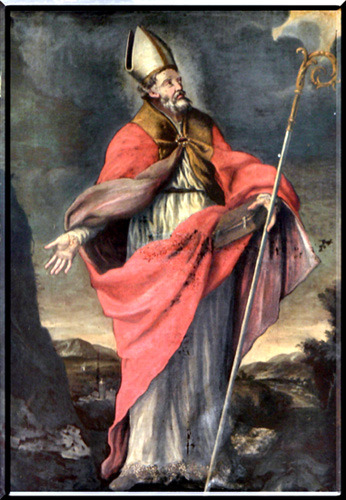
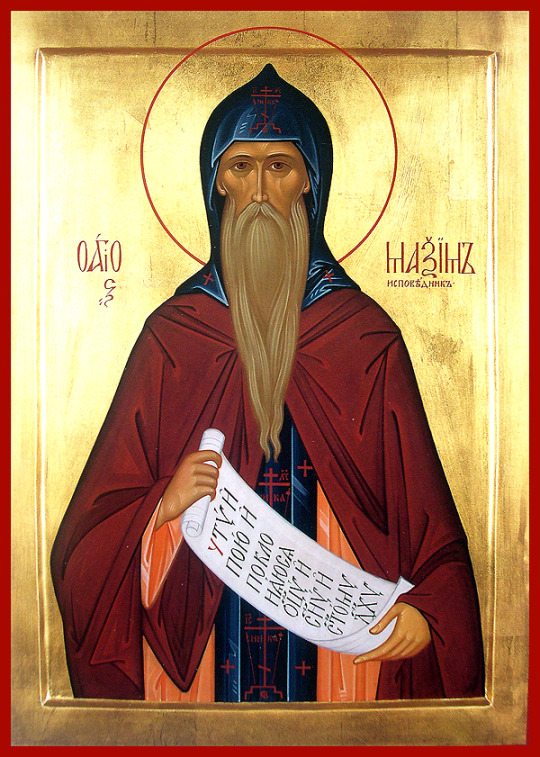
About St Anselm (left)
About St Maximus the Confessor (right)
PRE-SCHISM BRACKET ROUND 1
#st anselm#st anselm of canterbury#st maximus#st maximos#st maximus the confessor#catholic#catholicism#catholic saint tournament#catholic saints#tumblr bracket#christianity#tumblr tournament#polls#theology#tumblr polls
4 notes
·
View notes
Text
I’m at work right now so I can’t show emotion but on the inside I am SCREAMING CRYING THROWING UP HOW DO I UNDERSTAND ANSELM’S ONTOLOGICAL PROOF OF GOD
0 notes
Text
SAINT OF THE DAY (April 21)

On April 21, the Catholic Church honors Saint Anselm, the 11th and 12th-century Benedictine monk and archbishop best known for his writings on Christ's atonement and the existence of God.
In a general audience given on 23 September 2009, Pope Benedict XVI remembered St. Anselm as “a monk with an intense spiritual life, an excellent teacher of the young, a theologian with an extraordinary capacity for speculation, a wise man of governance, and an intransigent defender of the Church's freedom.”
St. Anselm, the Pope said, stands out as “one of the eminent figures of the Middle Ages who was able to harmonize all these qualities, thanks to the profound mystical experience that always guided his thought and his action.”
Anselm was born in Aosta, part of the Piedmont region of present-day Italy, around 1033.
While his father provided little in the way of moral or religious influence, his mother was a notably devout woman and chose to send Anselm to a school run by the Benedictine order.
The boy felt a profound religious calling during these years, spurred in part by a dream in which he met and conversed with God.
His father, however, prevented him from becoming a monk at age 15.
This disappointment was followed by a period of severe illness, as well as his mother's early death.
Unable to join the monks, and tired of mistreatment by his father, Anselm left home and wandered throughout parts of France and Italy for three years.
His life regained its direction in Normandy, where he met the Benedictine prior Lanfranc of Pavia and became his disciple.
Lanfranc recognized his pupil's intellectual gifts and encouraged his vocation to religious life.
Accepted into the order and ordained a priest at age 27, Anselm succeeded his teacher as prior in 1063 when Lanfranc was called to become abbot of another monastery.
Anselm became abbot of his own monastery in 1079.
During the previous decade, the Normans had conquered England, and they sought to bring monks from Normandy to influence the Church in the country.
Lanfranc became Archbishop of Canterbury, then asked Anselm to come and assist him.
The period after Lanfranc's death, in the late 1080s, was a difficult time for the English Church.
As part of his general mistreatment of the Church, King William Rufus refused to allow the appointment of a new archbishop.
Anselm had gone back to his monastery and did not want to return to England.
In 1092, however, he was persuaded to do so. The following year, the king changed his mind and allowed Anselm to become Archbishop of Canterbury.
But the monk was extremely reluctant to accept the charge, which would involve him in further struggles with the English crown in subsequent years.
For a three-year period in the early 12th century, Anselm's insistence on the self-government of the Church – against the claims of the state to its administration and property – caused him to be exiled from England.
But he was successful in his struggle and returned to his archdiocese in 1106.
In his last years, Anselm worked to reform the Church and continued his theological investigations – following the motto of “faith seeking understanding.”
After his death on 21 April 1109, his influence on the subsequent course of theology led Pope Clement XI to name him a Doctor of the Church in 1720.
He was canonized by Pope Alexander VI on 4 October 1494.
He is the patron saint of theologians and philosophers.
1 note
·
View note
Text
Three Pesudo-Augustine collections 1498, 1686, 1701.
Each contain the Meditations, Soliloquia, and Manuall The contents of these three volumes from three different centuries all contain the three ‘core’ pseudo-Augustine texts ,the two latin editions have texts by Pseudo-Bernardus, Petrus Damiani, Anselm of Canterbury, N. Laudensis, Pius II, Papst, Maphaeus Vegius,Vincentius Ferrerius,Pseudo-Bernardus. The English edition has just the Meditations,…
#Anselm of Canterbury#Maphaeus Vegius#Masellus Beneventanus#Petrus Damiani#Pseudo Augustine#Pseudo-Bernardus#Saint Augustine#Vincentius Ferrerius
0 notes
Text
Oomfieloomfie asked me about my thoughts on Joshua Graham and maybe come Saturday I’ll have a decent summary of what I think of him as a romantical partner but I just want to say. Liking him is truly an acquired taste. In every facet.
- manipulative and the world will burn before he lets up on whatever objective he’s set his mind on which is truly such a poor choice for any lover with the slightest semblance of personal agency and love for adventure, blah blah blah
- old and gross literally. (let’s be real now. there’s a reason why he keeps himself clean. antiseptic + oldsmell + mansmell + burn smell/pus wombo combo! who won the smell lottery??!!! I did!!!!)
- an ideology so very befitting of being sprayed water like a misbehaving cat.
- strange behaviour… the personification of an ellipsis.
A headcanon I have of him is that his whole “chems do not work on me…” bs is FAKE he’s just really vain in his penance (will never take painkillers concerning the burns/phantom burn/whatever you call that formally) (inspired by something I read a little bit of from St. Anselm of Canterbury)
11 notes
·
View notes
Text
Seven Theories of Atonement
While all Christians agree that, as of first importance, that Christ died for our sins in accordance with the Scriptures (1 Corinthians 15:3), they've disagreed with each other about the specifics of it and come up with different theories about it. Hence, I'm going to describe seven theories of atonement in short. (Also, many people from the Protestant world are unaware of theories other than penal substitution, and I want to do a little to alter that).
Recapitulation Theory
"For as in Adam all die, so also in Christ shall all be made alive" (1 Corinthians 15:22)
First proposed by St. Irenaeus of Lyons in the late 2nd century, this posits that Christ atoned for us by leading a sinless life, hence succeeding where Adam failed and becoming the new head of the human race, taking away our guilt. While pretty much no-one holds this as their primary view of atonement anymore, it's become a component part of pretty much all views of atonement.
Ransom Theory
"For even the Son of Man came not to be served but to serve, and to give His life as a ransom for many.” (Mark 10:45)
First proposed by Origen of Alexandria in the mid-3rd century, this posits that Christ was given to the Devil in exchange for the Devil relinquishing his hold on humanity, but the Devil could not claim Christ due to His sinlessness, and the Devil was left empty-handed. While almost extinct in the West, it's still popular among the Orthodox.
Satisfaction Theory
"In this is love, not that we have loved God but that He loved us and sent His Son to be the propitiation for our sins." (1 John 4:10)
First proposed by Anselm of Canterbury in the late 11th century, this posits that Christ's death was a sacrifice that gave infinite honour to God, and hence removed the dishonour of our sins. This became and remains the most common Roman Catholic view of atonement.
Moral Influence Theory
"...but God shows His love for us in that while we were still sinners, Christ died for us." (Romans 5:8)
First proposed by Peter Abelard in the early 12th century, this posits that Christ's death revealed to humans that God who was merciful and self-sacrificing rather than judgemental and angry, and hence moved us to repentance. This was condemned as heretical at the time, but was later adopted by theological liberals of all stripes and has become their standard theory of atonement.
Penal Substitutionary Theory
"For our sake He made Him to be sin who knew no sin, so that in Him we might become the righteousness of God." (2 Corinthians 5:21)
First proposed by Martin Luther in the early 16th century, this posits that Christ's death saved us because he was punished for our sins in lieu of us, fulfilling God's justice while allowing Him to be merciful. While there are some exceptions, this has become the standard view among Protestants, particularly ones of a Calvinistic tendency.
Governmental Theory
"For Christ also suffered once for sins, the righteous for the unrighteous, that He might bring us to God, being put to death in the flesh but made alive in the Spirit..." (1 Peter 3:18)
First proposed by Hugo Grotius in the early 17th century, this posits a variant of penal substitution, wherein Christ was punished as a demonstration of God's wrath, not for specific sins. This is the dominant view among Arminian Christians such as Methodists.
Christus Victor Theory
"He disarmed the rulers and authorities and put them to open shame, by triumphing over them in Him." (Colossians 2:15)
First proposed by Gustaf Aulen in the early 20th century, this posits a re-interpretation of ransom theory, wherein Christ saved us by defeating sin, the Devil and death - defeating sin by being accursed under the Law due to death on a cross despite being sinless and hence discrediting the Law, defeating the Devil by being sinless and so giving the Devil no claim on Him, and defeating death by resurrecting. While it doesn't have as many followers as the others due to being very recent, it's rapidly growing in popularity, particularly among Evangelicals and Anabaptists.
31 notes
·
View notes
Text
Me: Aw, this thing I made doesn't measure up to how I pictured it :(
St. Anselm of Canterbury: EXISTENCE IS MORE PERFECT THAN NONEXISTENCE
91 notes
·
View notes